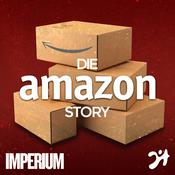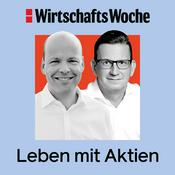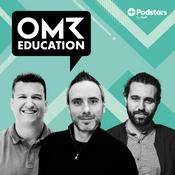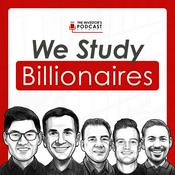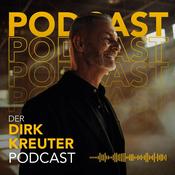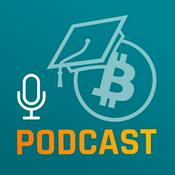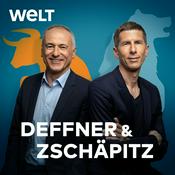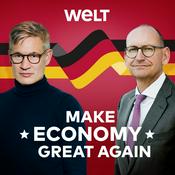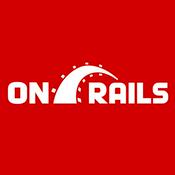221 Episoden

Kent L Beck: You’re Ignoring Optionality… and Paying for It
09.12.2025 | 49 Min.
Kent Beck: You’re Ignoring Optionality… and Paying for ItIn this episode of Maintainable, Robby speaks with Kent Beck, a foundational voice in modern software development and author of Tidy First?. Kent joins from California to explore why optionality is a central, often underestimated dimension of maintainable software.Kent begins by describing the tension between features and future flexibility. Shipping new capabilities is easy to measure. Creating options for what comes next is not. That imbalance is where maintainability either flourishes or collapses. Senior developers in particular must learn to navigate this tension because they have lived through the consequences when no one does.They reflect on how cost models have shifted across the last five decades. Early in Kent’s career, computers were expensive and programmers were cheap. Today the balance often flips depending on scale. At massive scale, electricity and compute time become meaningful costs again. That variability shapes whether teams optimize for hardware efficiency or developer efficiency.Episode Highlights[00:00:46] The Two Forms of Software ValueKent explains why software value comes from both current features and the options you preserve for future work. He describes optionality as the invisible half of maintainability.[00:03:35] When Computers Become “Expensive” AgainRobby and Kent revisit the shift from hardware-optimized development to developer-optimized development and how large-scale systems have reintroduced compute cost pressures.[00:07:25] Why the Question Mark in Tidy First?Kent shares why tidying is always a judgment call and why he put a question mark in the title.[00:10:14] The Real Cost of Speculative FlexibilityThey discuss why adding configurability too early creates waste and why waiting until just before you need it increases value.[00:13:46] Making Hard Changes EasyKent outlines his guiding idea. When you face a difficult change, make the change easy first, then make the easy change.[00:17:08] The Feature SawKent explains his features versus options graph and how teams repeatedly burn optionality until they hit zero. At that point, forward movement becomes painful.[00:19:37] Why 100 Percent Utilization Is a TrapKent discusses how queuing theory shows that full utilization pushes wait times toward infinity. Overcommitted teams have no room for design work.[00:22:44] Split Teams Do Not Solve the ProblemRobby talks about consulting scenarios where “tidy teams” and “feature teams” are separated. Kent argues that this splits incentives and prevents optionality from being sustained.[00:26:15] Structure and Behavior Should Not Ship TogetherKent describes why feature changes are irreversible, structure changes are reversible, and why combining them increases risk for everyone.[00:30:37] Tidying Reveals IntentWhile cleaning up structure, developers often uncover logic flaws or misunderstandings that were previously hidden.[00:32:00] When Teams Discourage TestingKent shares stories about environments where developers were punished for refactoring or writing tests. He explains why building career options is essential in those situations.[00:37:57] Why Tidying Is an Ethical ObligationKent reframes optionality as a moral responsibility. No one should make work harder for the next person who touches the code.[00:41:33] Succession and SlicingKent describes how nearly every structural change can be broken into small, safe steps, even when the change first appears atomic.[00:47:00] A Small Habit to Start TodayKent suggests adding a blank line to separate conceptual chunks in long functions. It is a small step that improves clarity immediately.Resources MentionedTidy First? by Kent BeckKent Beck on SubstackThe Timeless Way of Building by Christopher AlexanderThanks to Our Sponsor!Turn hours of debugging into just minutes! AppSignal is a performance monitoring and error-tracking tool designed for Ruby, Elixir, Python, Node.js, Javascript, and other frameworks.It offers six powerful features with one simple interface, providing developers with real-time insights into the performance and health of web applications.Keep your coding cool and error-free, one line at a time! Use the code maintainable to get a 10% discount for your first year. Check them out! Subscribe to Maintainable on:Apple PodcastsSpotifyOr search "Maintainable" wherever you stream your podcasts.Keep up to date with the Maintainable Podcast by joining the newsletter.

Don MacKinnon: Why Simplicity Beats Cleverness in Software Design
02.12.2025 | 50 Min.
Episode Highlights[00:00:48] What Makes Software MaintainableDon explains why unnecessary complexity is the biggest barrier to maintainability, drawing on themes from A Philosophy of Software Design.[00:03:14] The Cost of Clever AbstractionsA real story from a Node.js API shows how an unused abstraction layer around MongoDB made everything harder without delivering value.[00:04:00] Shaping Teams and Developer ToolsDon describes the structure of the Searchcraft engineering team and how the product grew out of recurring pain points in client projects.[00:06:36] Reducing Complexity Through SDK and Infra DesignWhy Searchcraft intentionally limits configuration to keep setup fast and predictable.[00:08:33] Lessons From ConsultingRobby and Don compare consulting and product work, including how each environment shapes developers differently.[00:15:34] Inherited Software and Abandoned DependenciesDon shares the problems that crop up when community packages fall behind, especially in ecosystems like React Native.[00:18:00] Evaluating Third-Party LibrariesSignals Don looks for before adopting a dependency: adoption, update cadence, issue activity, and whether the library is “done.”[00:19:40] Designing Code That Remains UnderstandableWhy clear project structure and idiomatic naming matter more than cleverness.[00:20:29] RFCs as a Cultural AnchorHow Don’s team uses RFCs to align on significant changes and avoid decision churn.[00:23:00] Documentation That Adds ContextDocumentation should explain why, not echo code. Don walks through how his team approaches this.[00:24:11] Type Systems and MaintainabilityHow Don’s journey from PHP and JavaScript to TypeScript and Rust changed his approach to structure and communication.[00:27:05] Testing With TypesStable type contracts make tests cleaner and less ambiguous.[00:27:45] Building Trust in AI SystemsDon discusses repeatability, hallucinations, and why tools like MCP matter for grounding LLM behavior.[00:29:28] AI in Developer ToolsSearch Craft’s MCP server lets developers talk to the platform conversationally instead of hunting through docs.[00:33:21] Improving Legacy Systems SlowlyThe Strangler pattern is a practical way to replace old systems one endpoint at a time.[00:34:11] Deep Work and Reducing Reactive NoiseDon encourages developers to carve out time for uninterrupted thinking rather than bouncing between notifications.[00:36:09] Measuring ProgressBuild times, test speeds, and coverage provide signals teams can use to track actual improvement.[00:38:24] Changing Opinions Over a CareerWhy Don eventually embraced TypeScript after initially writing it off.[00:39:15] Industry Trends and Repeating CyclesSPAs, server rendering, and the familiar pendulum swing in web architecture.[00:41:26] Experimentation and Team AutonomyHow POCs and side projects surface organically within Don’s team.[00:44:42] Growing Skills Through Intentional GoalsSetting learning targets in 1:1s to support long-term developer growth.[00:47:19] Where to Find DonLinkedIn, Blue Sky, and his site: donmackinnon.dev.Resources MentionedA Philosophy of Software Design by John OusterhoutJohn Ousterhout’s Maintainable.fm Interview (Episode 131)SearchcraftElasticAlgoliaWordPress Plugin DirectoryRequest for Comments (RFC)Strangler Fig PatternC2 WikiModel Context Protocol (MCP)Glam AIAubrey/Maturin Series by Patrick O’BrianMaster and Commanderdonmackinnon.devThanks to Our Sponsor!Turn hours of debugging into just minutes! AppSignal is a performance monitoring and error-tracking tool designed for Ruby, Elixir, Python, Node.js, Javascript, and other frameworks.It offers six powerful features with one simple interface, providing developers with real-time insights into the performance and health of web applications.Keep your coding cool and error-free, one line at a time! Use the code maintainable to get a 10% discount for your first year. Check them out! Subscribe to Maintainable on:Apple PodcastsSpotifyOr search "Maintainable" wherever you stream your podcasts.Keep up to date with the Maintainable Podcast by joining the newsletter.

Chris Zetter: Building a Database to Better Understand Maintainability
18.11.2025 | 49 Min.
Episode SummaryIn this conversation, Robby sits down with software engineer and author Chris Zetter to explore what building a relational database from scratch can teach us about maintainability, architectural thinking, and team culture. Chris shares why documentation often matters more than perfectly shaped code, why pairing accelerates learning and quality, and why “boring technology” is sometimes the most responsible choice. Together they examine how teams get stuck in local maxima, how junior engineers build confidence, and how coding agents perform when asked to implement a database.Episode Highlights[00:01:00] What Makes Software MaintainableChris explains that well-maintained software is defined by how effectively it helps teams deliver value and respond to change. In some domains—like payroll systems—the maintainability burden shifts toward documentation rather than code organization.[00:03:50] Documentation vs. Code CommentsHe describes visual docs, system diagrams, and commit–ticket links as more durable sources of truth than inline comments, which tend to rot and discourage refactoring.[00:05:15] Rethinking Technical DebtChris argues that teams overuse the metaphor. He prefers naming the specific reason something is slow or brittle—like outdated libraries or rushed decisions—because that builds trust and clarity with product partners.[00:07:45] Where Core Debt Really LivesEarlier in his career he obsessed over long files; now he focuses on structural issues. Architecture, boundaries, and naming affect changeability far more than messy internals.[00:08:15] Pairing as the Default ToolChris loves pairing for its speed, clarity, and shared context. Remote pairing has removed obstacles like mismatched keyboard setups or cramped office seating. Tools like Tuple and Pop keep it smooth.[00:10:20] The Mob Tool and Fast Driver SwitchingHe explains how the Mob CLI tool makes switching drivers nearly instant, which keeps energy high and lets everyone work in their own editor environment, reducing friction and fatigue.[00:13:45] Pairing with Junior EngineersPairing helps newer developers avoid painful pull-request rework and builds confidence. But teams must balance pairing with opportunities for engineers to build autonomy.[00:20:50] Getting Feedback SoonerChris emphasizes speed of feedback: showing progress early to stakeholders prevents wasted days—and sometimes weeks—of heading in the wrong direction.[00:21:10] Boring Technology as a FeatureAfter being burned by abandoned frameworks, Chris champions predictable, well-supported tools for the big layers: language, framework, database. Novelty is great—but only in places where rollback is cheap.[00:23:20] Balancing Professional Development with Organizational NeedsDevelopers want experience with new technology; organizations want stability. Chris describes how leaders can channel curiosity safely and productively.[00:27:20] Build a Database ServerChris’s book, Build a Database Server, is a practical, language-agnostic guide to building a relational database from scratch. It uses a test suite as a feedback loop so developers can experiment, refactor, and learn architectural trade-offs along the way.[00:31:45] What Writing the Book Taught HimCreating a database deepened his appreciation for Postgres maintainers. He highlights the number of moving parts—storage engine, type system, query planner, wire protocol—and how academic papers often skip hands-on guidance.[00:33:00] Experimenting with Coding AgentsChris tested coding agents by giving them the book’s test suite. They passed many tests but produced brittle, incoherent architecture. Without a feedback loop for quality, the agents aimed only to satisfy test conditions—not build maintainable systems.[00:36:55] Escaping a Local Maxima Through a Design SprintChris shares a story of a team stuck maintaining a system that no longer fit business needs. A design sprint gave them space to reimagine the system, clarify naming, validate concepts, and identify which pieces were worth reusing.[00:40:40] Rewrite vs. RefactorHe leans toward refactor for large systems but supports small, isolated rewrites when boundaries are clear.[00:41:40] Building Trust in Legacy CodeWhen inheriting an old codebase, Chris advises starting with a small bug fix or UI tweak to understand deployment pipelines, test coverage, and failure modes before tackling bigger improvements.[00:43:20] Recommended ReadingChris recommends _Turn the Ship Around! for its lessons on empowering teams to act with intent instead of waiting for permission.Resources MentionedBuild a Database ServerChris Zetter’s blogThe Mob Programming CLI ToolTuplePopTurn the Ship Around!Thanks to Our Sponsor!Turn hours of debugging into just minutes! AppSignal is a performance monitoring and error-tracking tool designed for Ruby, Elixir, Python, Node.js, Javascript, and other frameworks.It offers six powerful features with one simple interface, providing developers with real-time insights into the performance and health of web applications.Keep your coding cool and error-free, one line at a time! Use the code maintainable to get a 10% discount for your first year. Check them out! Subscribe to Maintainable on:Apple PodcastsSpotifyOr search "Maintainable" wherever you stream your podcasts.Keep up to date with the Maintainable Podcast by joining the newsletter.

Denis Rechkunov: When Consistency Becomes a Culture
28.10.2025 | 1 Std. 6 Min.
Maintaining consistency across a sprawling codebase is one of the hardest challenges in software engineering. Denis Rechkunov, a Principal Software Engineer at Elastic, joins Robby to share how his team turned consistency into a cultural practice rather than a technical checklist. From managing open source projects with hundreds of contributors to experimenting safely with new patterns, Denis believes maintainability begins with shared ownership, not just clean code.He explains how Elastic introduced automation and linters to improve cohesion without discouraging creativity. Instead of enforcing perfection across the entire system, Denis’ team scopes their changes to manageable areas and rewards steady progress over sweeping rewrites. Their annual “On Week” tradition gives engineers space to fix what frustrates them most, showing how small, focused bursts of work can produce big leaps in stability and morale.The conversation also explores the human side of maintainability. Denis recalls early lessons about unclear expectations, the importance of documenting decisions in public pull requests, and how open feedback loops build trust across remote teams. Whether it’s stabilizing a flaky CI pipeline or mentoring new engineers, Denis argues that technical excellence thrives when consistency becomes a habit shared by everyone.Episode Highlights[00:01:02] Defining Well-Maintained SoftwareDenis identifies consistency, documentation, testability, and agility as the key ingredients of maintainable systems.[00:02:22] Balancing Standards and AutonomyHow automation and linters help preserve code cohesion while minimizing interpersonal friction.[00:04:08] Experimenting SafelyElastic scopes new patterns to low-risk modules before broader adoption, avoiding mass rewrites.[00:07:19] Incremental CleanupLinters only apply to changed files, helping the team fix issues gradually without overwhelming contributors.[00:08:02] Maintainability as a People ProblemDenis highlights that sustainable systems depend more on culture and mentorship than on architecture.[00:10:13] Lessons from MiscommunicationAn early experience showed the cost of undocumented conventions and unclear onboarding.[00:17:09] Making Space for Technical DebtElastic’s engineers dedicate part of each sprint and an annual “On Week” to tackle maintenance work.[00:23:05] Restoring CI ReliabilityDenis shares how the team revived a pipeline with only a 10% success rate by categorizing failures and focusing on data.[00:32:00] Practicing Software ArchaeologyHe stresses the value of documenting discussions in pull requests to avoid historical guesswork later.[00:36:09] Feedback and TrustOpen communication, humility, and mutual feedback loops form the backbone of a maintainable culture.[00:51:00] Embracing Chaos in Open SourceDenis encourages teams to accept a degree of entropy and focus their efforts on user-facing stability.[01:00:00] Security and PrivacyWhy maintainability, trust, and privacy are inseparable pillars of long-term sustainability.[01:01:06] Where to StartInstead of rewriting code, start by cultivating maintainability as a shared value across the team.Resources MentionedElasticgolangci-lintAppSignalThe Caves of Steel by Isaac Asimov — Denis’ recommendation inspired Robby to finally pick up a copy and start reading it himself.Denis’s Blog – rdner.deDenis on GitHubDenis on MastodonDenis on LinkedInThanks to Our Sponsor!Turn hours of debugging into just minutes! AppSignal is a performance monitoring and error-tracking tool designed for Ruby, Elixir, Python, Node.js, Javascript, and other frameworks.It offers six powerful features with one simple interface, providing developers with real-time insights into the performance and health of web applications.Keep your coding cool and error-free, one line at a time! Use the code maintainable to get a 10% discount for your first year. Check them out! Subscribe to Maintainable on:Apple PodcastsSpotifyOr search "Maintainable" wherever you stream your podcasts.Keep up to date with the Maintainable Podcast by joining the newsletter.

Nathan Ladd: Relentless Improvement and the Cost of Neglect
14.10.2025 | 54 Min.
Episode NotesThe discussion moves into how standards evolve beyond tools, the trade-offs of monocultures vs. consensus-driven teams, and why ownership matters when the original authors move on. Nathan also unpacks the cost of neglect, describing defects as anything that slows developers down—not just issues that impact end users.Later in the conversation, Nathan recounts a migration from a React SPA to Turbo and Stimulus that removed barriers between designers and developers. He highlights how keeping all problems on the radar together prevents teams from falling into local optima. The episode closes with reflections on TestBench, blind spots in testing, continuous improvement in remote teams, and advice for developers who feel stuck raising maintenance concerns.Episode Highlights[00:01:07] Defining Well-Maintained Software: Nathan shares his three key markers—up-to-date dependencies, adherence to team standards, and fixing defects immediately.[00:02:53] From Tools to Tacit Knowledge: Why norms start with tool-enforced rules like RuboCop but evolve into cultural agreements within teams.[00:04:49] Speed vs. Durability: Teams built on monoculture move quickly early on, but diverse, consensus-driven cultures go farther.[00:11:11] Owning the Architecture: When original developers leave, new teams must take responsibility for architecture rather than defer decisions.[00:13:37] The Cost of Neglect: Dependencies, drifting standards, and defects interact in compounding ways. Nathan reframes defects as “anything that impedes developer effectiveness.”[00:17:46] React → Turbo + Stimulus Migration: A costly SPA and siloed design team gave way to a simpler approach that reduced rework and empowered designers to contribute directly.[00:22:44] Avoiding Local Optima: Tackling problems in isolation creates dead ends—addressing them holistically opens real paths forward.[00:24:32] Who We Seek Validation From: Developer identities often align with whose approval they value—shaping front-end vs. back-end divides.[00:27:34] Comfort vs. Maintenance Burden: Silos built for comfort create tomorrow’s maintenance problems.[00:33:45] Relentless Improvement in Remote Teams: Start as an ensemble, evolve into autonomous work cells, and use work logs to sustain consensus.[00:38:33] What’s Missing from Remote Work: Nathan reflects on lost “hallway conversations” and the challenge of building social glue remotely.[00:40:50] The Story Behind TestBench: Dissatisfaction with existing frameworks and a desire for simplicity led to TestBench’s creation.[00:47:38] Testing Blind Spots: The biggest blind spot is equating testing with automation—interactive testing and intelligible output remain essential.[00:50:35] Advice for Stuck Engineers: Nathan encourages developers to study quality traditions, connect with peers, and embrace continuous improvement.[00:53:16] Book Recommendations: Deming’s Out of the Crisis and The New Economics, Toyota’s product development work, and Rawls’ A Theory of Justice.Tools & Resources MentionedBrightworks Digital – Nathan’s current company, where he serves as Principal.Nathan Ladd on LinkedIn – Connect with Nathan and follow his work.TestBench – A Ruby testing framework co-created by Nathan.Turbo – Hotwire framework for building modern, fast applications without heavy JavaScript.Stimulus – A modest JavaScript framework for enhancing HTML with small, reusable controllers.RSpec – A popular Ruby testing tool for behavior-driven development.Minitest – A simple and fast Ruby testing framework.RuboCop – A Ruby static code analyzer and formatter.Lessons Learned in Software Testing – Classic book on testing by Cem Kaner, James Bach, and Bret Pettichord.Out of the Crisis – W. Edwards Deming’s influential work on quality and systems thinking.The New Economics – Deming’s follow-up book on continuous improvement.A Theory of Justice – John Rawls’ seminal work on moral and political philosophy.The Toyota Product Development System – Insights into Toyota’s continuous improvement and development practices.Thanks to Our Sponsor!Turn hours of debugging into just minutes! AppSignal is a performance monitoring and error-tracking tool designed for Ruby, Elixir, Python, Node.js, Javascript, and other frameworks.It offers six powerful features with one simple interface, providing developers with real-time insights into the performance and health of web applications.Keep your coding cool and error-free, one line at a time! Use the code maintainable to get a 10% discount for your first year. Check them out! Subscribe to Maintainable on:Apple PodcastsSpotifyOr search "Maintainable" wherever you stream your podcasts.Keep up to date with the Maintainable Podcast by joining the newsletter.
Weitere Wirtschaft Podcasts
Trending Wirtschaft Podcasts
Über Maintainable
Höre Maintainable, The Diary Of A CEO with Steven Bartlett und viele andere Podcasts aus aller Welt mit der radio.at-App
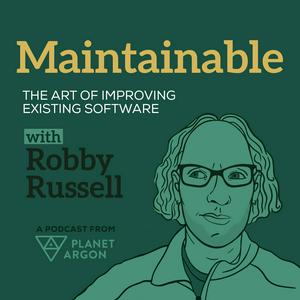
Hol dir die kostenlose radio.at App
- Sender und Podcasts favorisieren
- Streamen via Wifi oder Bluetooth
- Unterstützt Carplay & Android Auto
- viele weitere App Funktionen
Hol dir die kostenlose radio.at App
- Sender und Podcasts favorisieren
- Streamen via Wifi oder Bluetooth
- Unterstützt Carplay & Android Auto
- viele weitere App Funktionen


Maintainable
App laden,
loshören.




